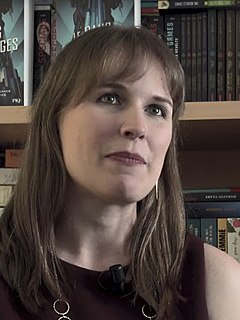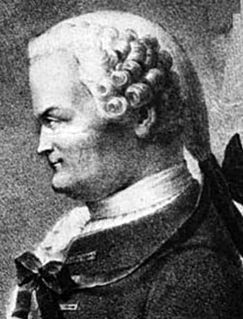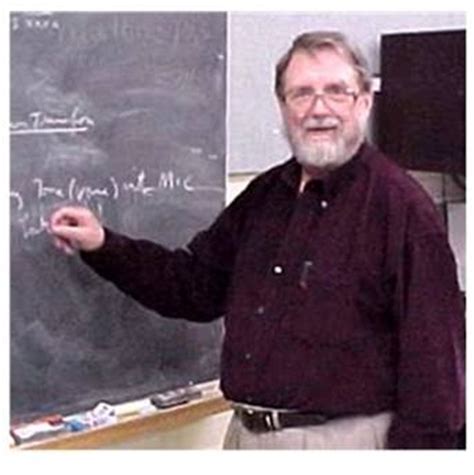A Quote by Pierre-Simon Laplace
Your Highness, I have no need of this hypothesis.
Quote Topics
Related Quotes
[Coining phrase "null hypothesis"] In relation to any experiment we may speak of this hypothesis as the "null hypothesis," and it should be noted that the null hypothesis is never proved or established, but is possibly disproved, in the course of experimentation. Every experiment may be said to exist only in order to give the facts a chance of disproving the null hypothesis.
But I should be very sorry if an interpretation founded on a most conjectural scientific hypothesis were to get fastened to the text in Genesis... The rate of change of scientific hypothesis is naturally much more rapid than that of Biblical interpretations, so that if an interpretation is founded on such an hypothesis, it may help to keep the hypothesis above ground long after it ought to be buried and forgotten.
Napoleon: You have written this huge book on the system of the world without once mentioning the author of the universe. Laplace: Sire, I had no need of that hypothesis. Later when told by Napoleon about the incident, Lagrange commented: Ah, but that is a fine hypothesis. It explains so many things.
However the machine would permit us to test the hypothesis for any special value of n. We could carry out such tests for a sequence of consecutive values n=2,3,.. up to, say, n=100. If the result of at least one test were negative, the hypothesis would prove to be false; otherwise our confidence in the hypothesis would increase, and we should feel encouraged to attempt establishing the hypothesis, instead of trying to construct a counterexample.
The first objection to Darwinism is that it is only a guess and was never anything more. It is called a "hypothesis," but the word "hypothesis," though euphonious, dignified and high-sounding, is merely a scientific synonym for the old-fashioned word "guess." If Darwin had advanced his views as a guess they would not have survived for a year, but they have floated for half a century, buoyed up by the inflated word "hypothesis." When it is understood that "hypothesis" means "guess," people will inspect it more carefully before accepting it.
I do not yet want to form a hypothesis to test, because as soon as you make a hypothesis, you become prejudiced. Your mind slides into a groove, and once it is in that groove, has difficulty noticing anything outside of it. During this time, my sense must be sharp; that is the main thing - to be sharp, yet open.





































